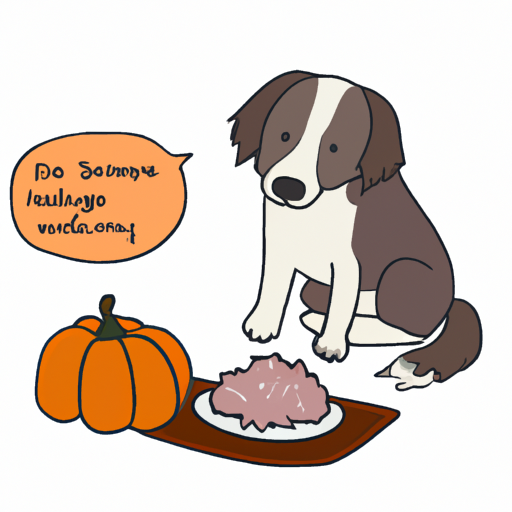It’s a sight no pet owner wants to see – your beloved canine companion suffering from an upset stomach. As a caregiver, you’re likely searching for ways to help your furry friend feel better. This comprehensive guide will shed light on what dogs can eat for an upset stomach, offering a range of practical and vet-approved solutions.
Table of Contents
- Understanding Canine Digestive Issues
- Foods to Soothe a Dog’s Upset Stomach
- Foods to Avoid
- How to Prevent Future Upset Stomachs
- When to Seek Veterinary Aid
- Frequently Asked Questions
Key Takeaways:
- Dogs with upset stomachs often benefit from a simple diet of easily digestible foods.
- Certain human foods, like pumpkin and rice, can aid in soothing digestive issues in dogs.
- Some foods can exacerbate a dog’s upset stomach and should be avoided.
- Consistent, balanced diet and regular vet check-ups can help prevent future digestive problems.
Understanding Canine Digestive Issues
Before we dive into what foods can help, it’s important to understand why your dog might be experiencing an upset stomach. Canine digestive issues can result from a variety of factors, such as eating too quickly, consuming something harmful, or as a symptom of an underlying health issue.
A study even reveals that psychological stress can contribute to gastrointestinal problems in pets, just as it does in humans.
Foods to Soothe a Dog’s Upset Stomach
When your dog’s stomach is upset, you want to give them something that’s easy to digest and doesn’t further irritate their stomach. Here are some foods that can help:
-
Cooked, Plain Chicken: Chicken is a great source of protein and is easy for dogs to digest.
-
White Rice: Easily digestible, white rice can help bind the stool in cases of diarrhea.
-
Pumpkin: High in fiber, canned pumpkin can help regulate your dog’s bowel movements.
-
Probiotic Yogurt: Small amounts of plain, unsweetened yogurt can provide probiotics that help restore balance in your dog’s gut flora.
-
Bone Broth: Nutrient-rich and easy to digest, bone broth can be soothing for a dog’s upset stomach.
For a more detailed guide on how to prepare these foods for your dog, check out this helpful article.
Foods to Avoid
Just as there are foods that can help soothe your dog’s stomach, there are also foods that you should avoid, as they can exacerbate their discomfort.
-
Milk and Dairy: Some dogs are lactose intolerant and consuming dairy can lead to further upset.
-
Fatty or Spicy Foods: These can inflame the digestive tract and lead to further discomfort.
-
Onions and Garlic: These can be toxic to dogs and should be avoided.
How to Prevent Future Upset Stomachs
While it’s not always possible to prevent a dog’s upset stomach, there are steps you can take to minimize the risk.
-
Regular Vet Check-ups: Regular visits to the vet can catch any underlying health issues early.
-
Consistent Diet: Sudden changes in diet can upset a dog’s stomach. If you need to change their food, do it gradually.
-
Keep Harmful Foods Out of Reach: Ensure foods that can harm your dog are stored safely away.
For more tips on maintaining your dog’s health, click here.
When to Seek Veterinary Aid
While most cases of upset stomach in dogs can be resolved at home, there are instances when it’s crucial to seek professional help. If your dog shows signs like prolonged vomiting, blood in their stool, loss of appetite, or lethargy, it’s time to consult a vet.
Frequently Asked Questions
Q: How long does an upset stomach in dogs usually last?
A: Most minor cases clear up in 24 to 48 hours. If symptoms persist beyond this period, consult a vet.
Q: Can I give my dog over-the-counter medication for an upset stomach?
A: Never give your dog medication without consulting a vet. Some human medicines can be harmful to dogs.
Q: Do dogs naturally eat grass when their stomach is upset?
A: Yes, some dogs do eat grass when they’re feeling unwell. However, it’s not a cure for an upset stomach and excessive grass eating should be reported to a vet.
Q: How often should I feed my dog with an upset stomach?
A: Small, frequent meals can help a dog with an upset stomach. However, it’s best to consult your vet for specific advice.
For more FAQs, you can visit this page.
In conclusion, caring for a dog with an upset stomach can be a challenging experience, but with the right knowledge and approach, you can help your pet recover more quickly and comfortably. Remember, when in doubt, always consult with a professional.



